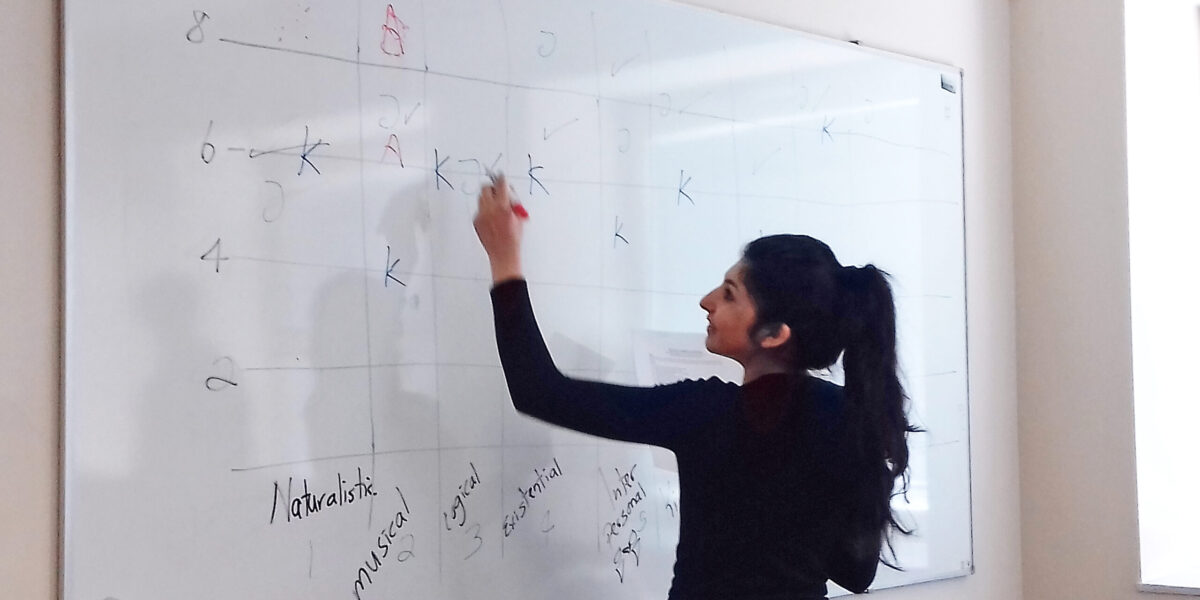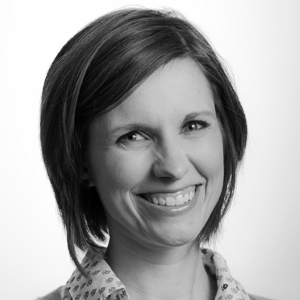Lithuania: Responding to the refugee crisis
Across most European countries, and on every news channel, are the faces of newly arrived refugees. This refugee crisis in Europe is the largest in modern history. While many agencies worked to give refugees food, clean water, and tents, many Iraqi and Syrian students had nowhere to continue their education. But even before the flood of refugees to Europe, LCC International University planned a response to the Middle East crisis.
“I have been moved by the plight of war-affected people and I realized that I can’t simply stay here and do nothing,” said Robin Gingerich, an instructor who teaches at LCC International University in Lithuania and is a mission associate of Mennonite Mission Network.
“I wanted to be a part of something to help,” Gingerich said.
In spring 2016, LCC International University launched a satellite campus in Tbilisi, Georgia (in close proximity to Syria and Iraq). The goal was to teach English to assist students affected by war to learn English so that they could continue their university education elsewhere, in Lithuania, in Europe, or North America. For two years, LCC staff had been contacting potential students through nongovernmental organizations in the Middle East while also exploring pathways for Syrians to enter Georgia. LCC secured a location, remodeled classrooms, and recruited teachers. In May, Gingerich moved to Georgia to serve as academic director. However, due to unsettled political situations, embassies were unwilling to offer visas likely due to perceived national security risks. In December 2016, LCC relocated the program from Georgia to LCC’s main campus in Lithuania.
English learning leads to healing
Currently, 14 students from Syria and Iraq are studying at LCC. A majority of them are studying in the intensive English program; others are taking university courses, while two are enrolled in master’s programs.
If this weren’t challenge enough, the Middle Eastern students who study at LCC also deal with the trauma of fleeing their homes in Syria and Iraq. Each of these students know personally the horrific abuses of war at the hands of ISIS. “They know the prisons in Iraq are pretty hellish, and some of their family members are in prison there,” Gingerich said. Their homes and neighborhoods are completely demolished, and for two years they lived in refugee camps.
In addition to teaching reading skills and grammar, Gingerich uses a new book called Resilience, by Michael Medley, a professor at Eastern Mennonite University. Medley developed the book from STAR (Strategies for Trauma, Awareness and Resilience) training to help displaced students heal their emotional wounds and learn English at the same time. Resilience combines English-language exercises with true stories of people affected by trauma around the world. The students are learning helpful ways to deal with their own trauma. Gingerich says it helps the students realize they are not the only ones who have fled their homes because of war. “It builds their confidence and … opens the door for more conversations.”
Investing in knowledge to spread God’s love
Although their challenges are immense, the Middle Eastern students that Gingerich teaches rise to the challenge. The students were invited to study at LCC because “they were already helping their people in the camps or they had a wish to be of service to others,” said Gingerich. Some were already assisting medics in the refugee camps, while others were involved in distributing humanitarian aid.
“They are outstanding people,” said Gingerich. “They work so hard. They’ve learned English. They are keeping in touch with their families. We hope they are on their way to a better future.”
LCC International University is the only university in the region to offer a Christian liberal arts education. In a university where 40 percent of the students are Lithuanian, and the others are international students, English becomes the unifying language.
Rebuilding what has been destroyed
Jahmir* is a Yazidi student (from Iraq) who was raised by his mother after his father died in the Iraq-Kuwaiti war. He began his university studies in regional planning in Duhok (a city in northern Iraq). When ISIS attacked Sinjar in August 2014, Jahmir and his relatives fled and are now living in refugee camps. He knows the horror of war, rape, and human trafficking. In 2015, he began volunteering at the Center for Peace and Conflict Resolution at the University of Dohuk, an organization that sponsors workshops and symposiums on peace-building and interreligious dialogue in cooperation with the University of New York, UNICEF, and Mennonite Central Committee. When Jahmir heard about LCC, he applied and was granted a visa. He dreams of getting a master’s degree in regional planning, and returning to Sinjar to “rebuild what ISIS has destroyed.”
*A pseudonym is used to ensure safety for the student and his family.







